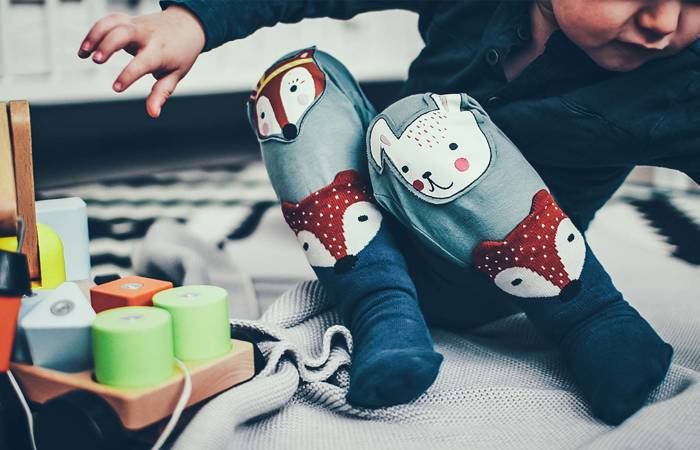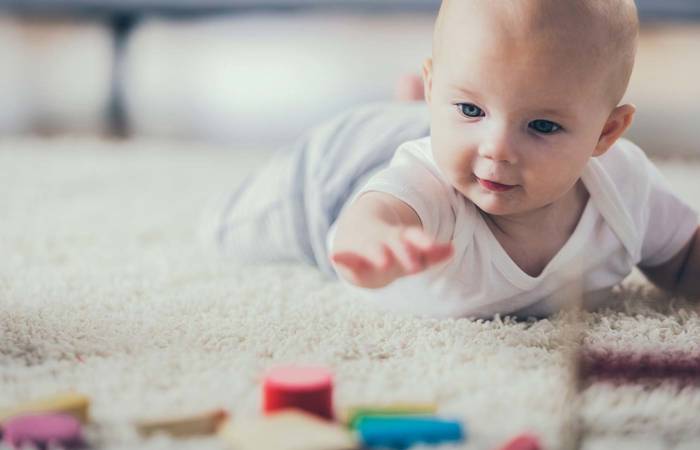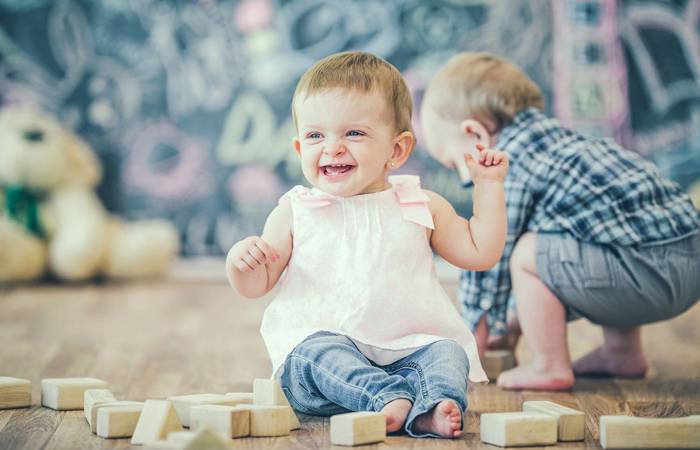Like what you see?
Sign up to receive more free parenting advice.
Thank you for subscribing to our newsletter!
Early Learning

Credit: iStock.com/mzoroyan
The journey is more important than the destination when it comes to small children and learning.
When they have the freedom to play, our children are satisfying their natural curiosity, making sense of the world around them and having fun.
They are also embarking on some pretty serious learning at the same time.
Goodstart Early Childhood Teacher Kirsty Brown says play-based learning can often be overlooked by parents who might not understand just how much children are taking in.
“Play-based learning is a simple concept but because so many of us are accustomed to seeing learning occur in formal settings, it’s easily misunderstood,” she says.
“Play-based learning is all about the process that children embark on, rather than achieving a specific outcome. To understand play-based learning it sometimes helps to contrast it against formal learning.
“Let’s say we wanted children to start exploring the letters of the alphabet. In a formal learning setting you might sit them down and ask them to memorise flash cards, while with play-based learning you would set up an area where children could pick up letters and use them in a variety of open-ended ways.”
In the play-based learning example, a skilled educator or teacher will extend the child’s learning as they play with the letters by talking about how they can be used, the sounds they make and the letters in their name.
The first five years are when children form their neural pathways and connections. Through play and active exploration, children’s brains are shaped and designed and many skills are developed such as1:
- Creativity
- Communication
- Problem solving
- Resilience
- Emotional regulation
- Relationship building
These are all critical skills needed for school and adult life, and quality play-based learning is the best way to develop them, says Kirsty.
A CASE STUDY
Floating and Sinking: Play-based learning for 3-5 year olds
“Recently my kindergarten children have been investigating floating and sinking, so in our science exploration area I set up a tub of water and left a variety of materials next to it. I also provided some clipboards and pens for children to use in their play,” says Goodstart Early Childhood Teacher Kirsty Brown.
“Each day the children would explore whether the objects floated or sank to the bottom. Without interrupting their play, I would talk to them using language such as ‘float’ and ‘sink’ so that they were able to describe what they could see.
The children experimented and recorded what they saw on their clipboards – some drew pictures, some put down symbols, while others tried to write words.
Each day they discovered something new, and after a week they wanted to make their own boats which they did by using a variety of materials and drawing on what they’d learned when experimenting.
When they tested their boats they noticed they all had good features, but that they all sank eventually. So they decided to work together using the things that worked best to make another boat.
This one floated all day! The children were so excited and kept coming back to check on it.”
This activity demonstrates play-based learning in action and the development of skills like:
- scientific understanding
- communicating using symbols and verbal language
- fine motor skills
- working independently and collaboratively
- using creativity
Within an early learning context, Queensland University of Technology Head of the School of Early Childhood and Inclusive Education Professor Ann Farrell says play based learning involves skilled educators to optimise the learning that is happening through play.
“Play based learning is paramount and those (early learning centres) that espouse to have a play based learning approach need to champion play because it is a definite advantage for children,” she says
“Through play, children experience, problem solve, communicate and make sense of their world.
“We know play is very important to a child’s development. We have compelling evidence of the importance of play to children’s development”.
“Cognitive, physical, social and emotional skills and taking initiative are all skills developed when a child learns by doing, trial and error and experimentation,” she says.
With evidence to support the fact that babies in the womb are communicating and interacting with the world around us, it is no wonder that newborns, toddlers and young children crave opportunities to learn and test new skills, Professor Farrell says.
“Play starts from the moment the child is born (even before) and we do see it in newborns," she says.
“Newborns initiate conversations, they communicate and learn how to exert influence over their caregivers, so we know there is no starting age, play is always happening.
“It is an integral part of human relationships, newborns interact with their caregiver for food or a nappy change. They initiate the exchange and the adult responds.
“Learning through play is not necessarily formal but is part of everyday life and parents should be encouraged to respond to the child,” she says.
“Be mindful that learning through play is set within the cultural contexts and different forms of play may be valued by different cultures. “
Encouraging play-based learning at home
- Let your child lead the play. Follow their interests without taking over.
- Keep play open ended. It’s about the process, not the outcome.
- Play alongside them. Get down to your child’s level and play as an equal, not as an authority figure. And don’t be scared to let go of your adult inhibitions!
- Allow moments of quiet and silence. This gives time for children to think about where their play is headed.
- Take time to just be an observer. See what happens as you step back, and think about different ways you could help extend the play.
- Introduce children to new vocabulary. Think about the language you use as you are playing.
- Play with a variety of things. Children will use many things that you might not think of as play materials. Boxes, cartons, tins and more can all be recycled for play.
- Balance inside and outside play. Different environments help to build a range of skills.
- If your child goes to kindergarten or an early learning centre, find out what they have been playing during the day and build on that at home.
- And remember – it is play, so have fun.
1 Center on the Developing Child (2009). Five Numbers to Remember About Early Childhood Development (Brief). Retrieved from www.developingchild.harvard.edu.
Animal Game
While waiting for the bus or in line say, “I'm thinking of an animal” and provide clues to help your child guess what animal you're thinking of. For example, “I'm thinking of an animal who lives in our house and has black and gray stripes.”
Playing “I’m thinking of …” helps develop your child’s working memory, including his/her ability to recall names and details. It also turns waiting time into a fun learning activity.
See all tips
Get Advice
Real parents. Real problems. We’re here with a group of leading early learning and parenting professionals to answer your questions.






